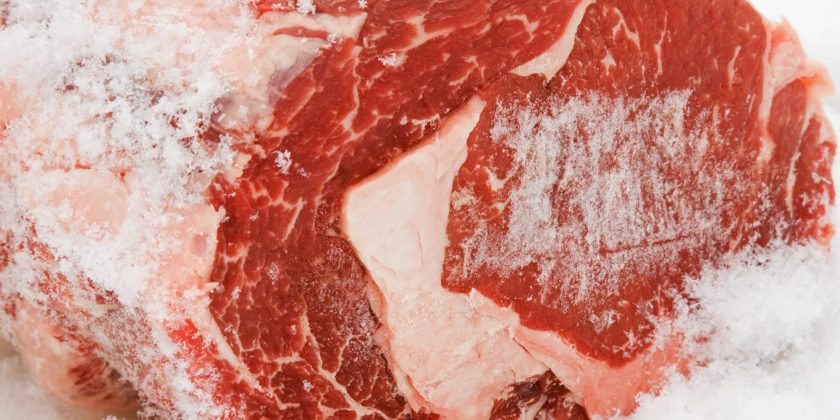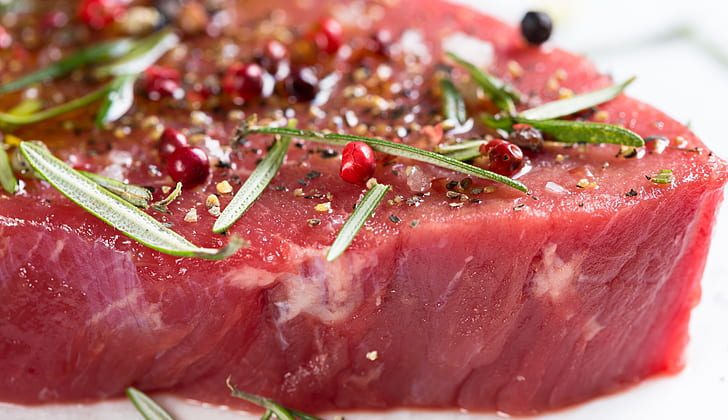
Most households have freezers these days. They’re a convenient way of keeping a ready supply of different meats, and they mean that you can benefit from the cost savings of buying in bulk. When you freeze and defrost meat, it’s important to follow some tried and tested procedures. That way, you will keep your meat in peak condition and, more importantly, minimise any risk to health.
Does freezing meat reduce the quality?
Freezing for a limited period does not impact negatively on the quality of fresh meat. It simply puts the brakes on the bacterial activity that occurs when meat is left at room temperature. If you freeze meat quickly and defrost correctly, it will turn out just as good as if it were fresh.
Why freeze on day of purchase?
The packaging on meat normally advises you that if freezing, you should do so on the day of purchase. This is to maintain quality, which gradually diminishes the longer the meat is left uncooked. Whilst it is entirely feasible that meat can be frozen right up until the use by date, it is not recommended.
How to prepare meat for the freezer.
It is best to portion up meat before freezing. Otherwise, you could end up having to defrost four sirloin steaks when you only need two. It’s worth asking your friendly butcher if they will provide this service for you.
The portions should then be vacuum packed. The butcher can usually do this or, if you prefer to do it yourself, there are many inexpensive vacuum packing machines on the market. Alternatively, pack meat in resealable bags, squeezing out as much air as you can. Failing that, tightly wrap in food wrap.
What can I do about freezer burn?
Although freezer burn doesn’t look attractive, it’s harmless and is merely the result of meat being exposed to the air. This results in dehydration and oxidation. If you find it too unsightly, simply trim it off. To avoid the problem in future, ensure that all meat is tightly wrapped. Ask your butcher if they offer a vacuum packing service or buy yourself a domestic vacuum packing machine.
Why shouldn’t I freeze meat twice?
Maybe you defrosted some meat intending to cook it but had a change of plans. Maybe there was a power cut and the contents of the freezer thawed out. Whatever the reason, freezing that meat again could prove harmful to your health. When you freeze meat, you make the bacteria dormant, but you don’t kill them. So, when you defrost meat, you reactivate the bacteria. Done properly, this is completely harmless, but the bacteria could grow. This means that if you refreeze the meat, you are also freezing a greater population of bacteria.
What is the proper way to defrost meat?
Ideally meat should always be defrosted in the fridge, and the temperature of the fridge should be around 5 degrees centigrade. In most cases, 24 hours should be enough time, but it depends on the amount of meat. It is best to allow a typical joint of one to four kilos about two days. Anything bigger will need nearer four.
If you use the defrost function on your microwave, please follow the manufacturer’s instructions closely, and once defrosted, cook the meat immediately.
How long can I keep defrosted meat in the fridge?
Once fully defrosted, meat should be kept no longer than 24 hours.
How long can I keep meat frozen?
As long as your freezer temperature is set at minus 18 degrees centigrade, meat should keep for a long time. However, to ensure optimum quality, it is best consumed within three months of freezing.
Is it safe to freeze cooked meat?
It is perfectly safe to freeze and defrost meat that has been cooked. Just ensure that the meat is completely cool before transferring to a resealable bag or plastic container. Once defrosted, consume withing 24 hours.
Meat packs at Traymoor
At Traymoor, we supply a range of meat packs to suit different tastes and budgets. They are renowned for their quality and value, and offer exceptional variety including chicken breasts, sausages, steaks, pork chops, diced meats, lamb steaks, and more.
For steak fans, we offer a sizzling steak lovers pack filled with sirloin steaks, fillet steaks, ribeye steaks, rump steaks and T-bone steaks.
Alternatively, take a look at our wide selection of restaurant-quality meats and choose exactly the items you want. Once we receive your order, our master butchers will get to work, and your meat will be delivered next day (not Sunday) in one of our refrigerated vehicles. We deliver across Essex, Suffolk, Cambridgeshire, Hertfordshire, and London (North & East).



